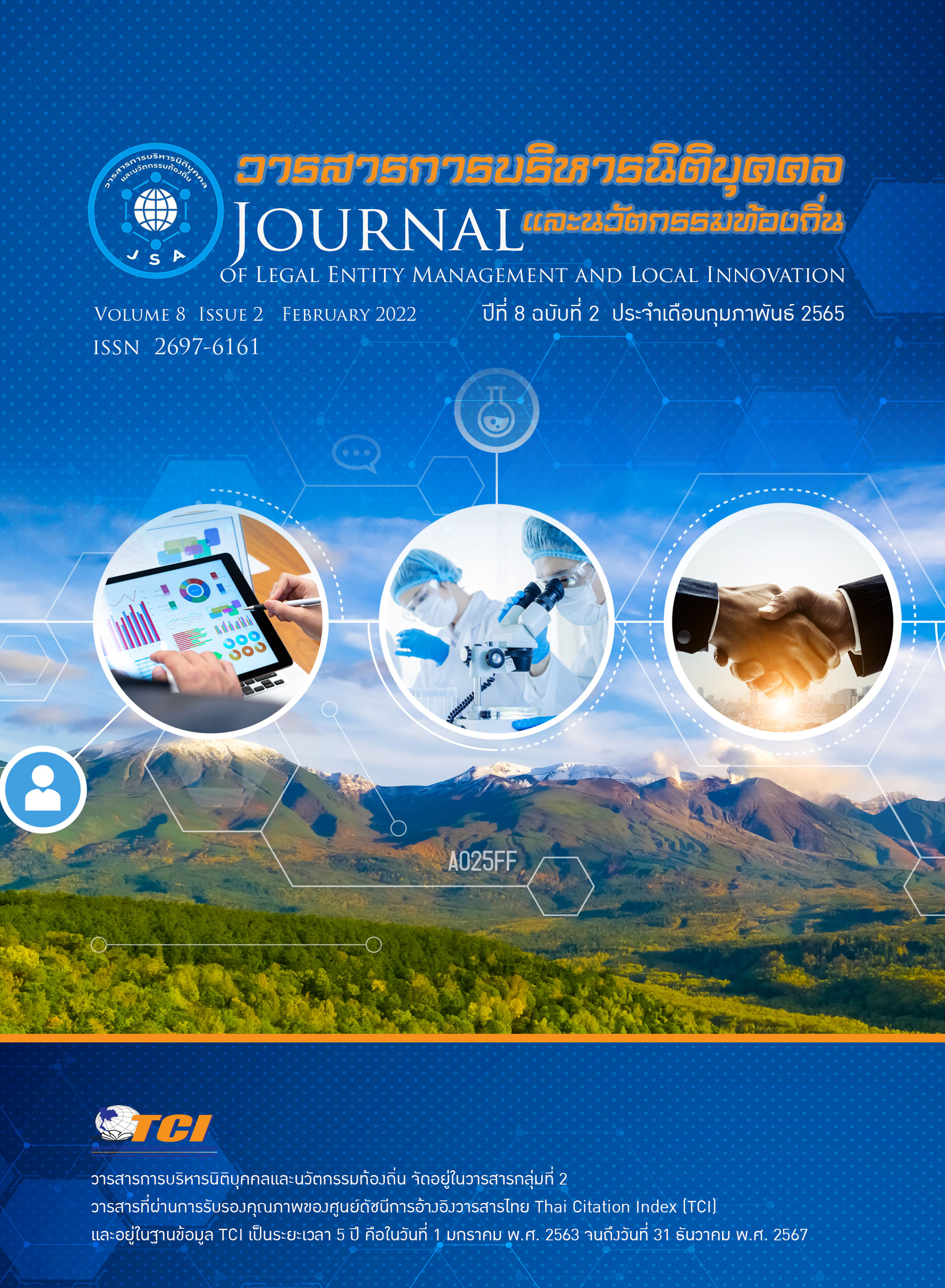Taboo and Health Behaviors of Mahout in Elephant Biosphere Kingdom of Thailand and Lao People’s Democratic Republic
Keywords:
Keywords : Taboo, Health Behavior, MahoutAbstract
The purposes of this research were to study health autobiography, taboo and health behavior of Mahout (Elephant Charmers) in elephant biosphere kingdom of Thailand and Lao People,s Democratic Republic, and to study related factors for taboo and health behavior of Elephant Charmers in kingdom of Thailand leading to getting the Policy recommendations to improve the healthy behavior development for Elephant Charmers, Mahouts and families in elephant biosphere kingdom of Thailand during February 2012 to May, 2021. The research procedure was done on key informants 5 Elephant Charmers and the others 53 interviews in Surin province, kingdom of Thailand and Champasak province, Lao People’s Democratic Republic. Further survey through questionnaires on 530 of the Elephant Charmer’s family, Mahouts and families in Surin province. The research method employed was the mixed methods of qualitative and quantitative researches by using Ethnographic research, focus group, exploratory factor analysis and stepwise multiple regression analysis. The results of the research were as followed. The health autobiography and health behavior of 5 Elephant Charmers, key informants in both Countries, aged 81-89 years, They were 2 “Mho-sadeang”, 2 “Mho-Sadum” and a “Krubayai or Tiyai” were that ; all were healthy in 5 aspects; Physical, Emotional, Social, Spiritual and Intellectual. Self – relianced and well-being, the leadership, good memory. They were the leaders of community rites, proudly, be in a good temper. They could raise warm and strong families by being careful, non-exploit together, practicing in the taboo and the principle of Buddhism. They lived consistently with the 10 national healthy regulations, 6 healthy principles of the Ministry of Public Health and Sufficiency Economic Philosophy. The taboo of Elephant Charmers in both Countries were strict in daily activities; such as, eating, sitting, walking, sleeping, worshipping “Pa Kam” spirits and practicing the principle of Buddhism. They were even more strict in their daily lives during the wild elephant round-up. The factors analysis; found that there were five factors of taboo related to the healthy behavior’s Elephant Charmers in the kingdom of Thailand included. 1)The procedure and food for health 2) The family relationship 3) The strict practice in morals and the principle of Buddhism 4)The credibility leadership and 5) The generosity and non-exploit. The results of this research were taken into group discussions by 24 connoisseurs (knowledgeable people) and getting the Policy recommendations to improve the healthy behavior development; such as, Food safety, Food quality, Food security, Healthy behavior, Family development, Practicing in Taboo and the principle of Buddhism. The Leadership training and Ecological development for the Elephant charmers, Mahouts and families in Kingdom of Thailand and apply with the general public for future generations


